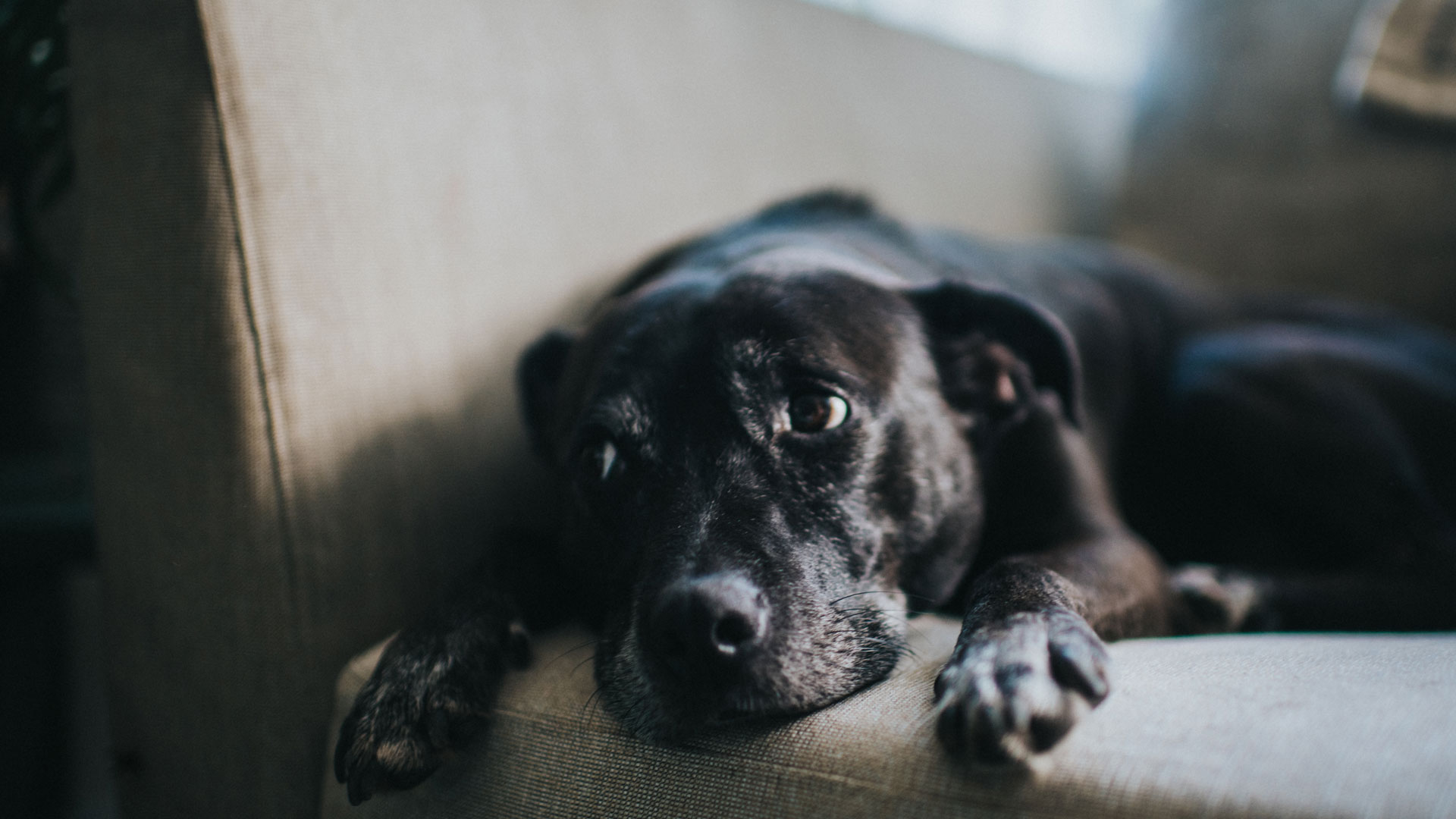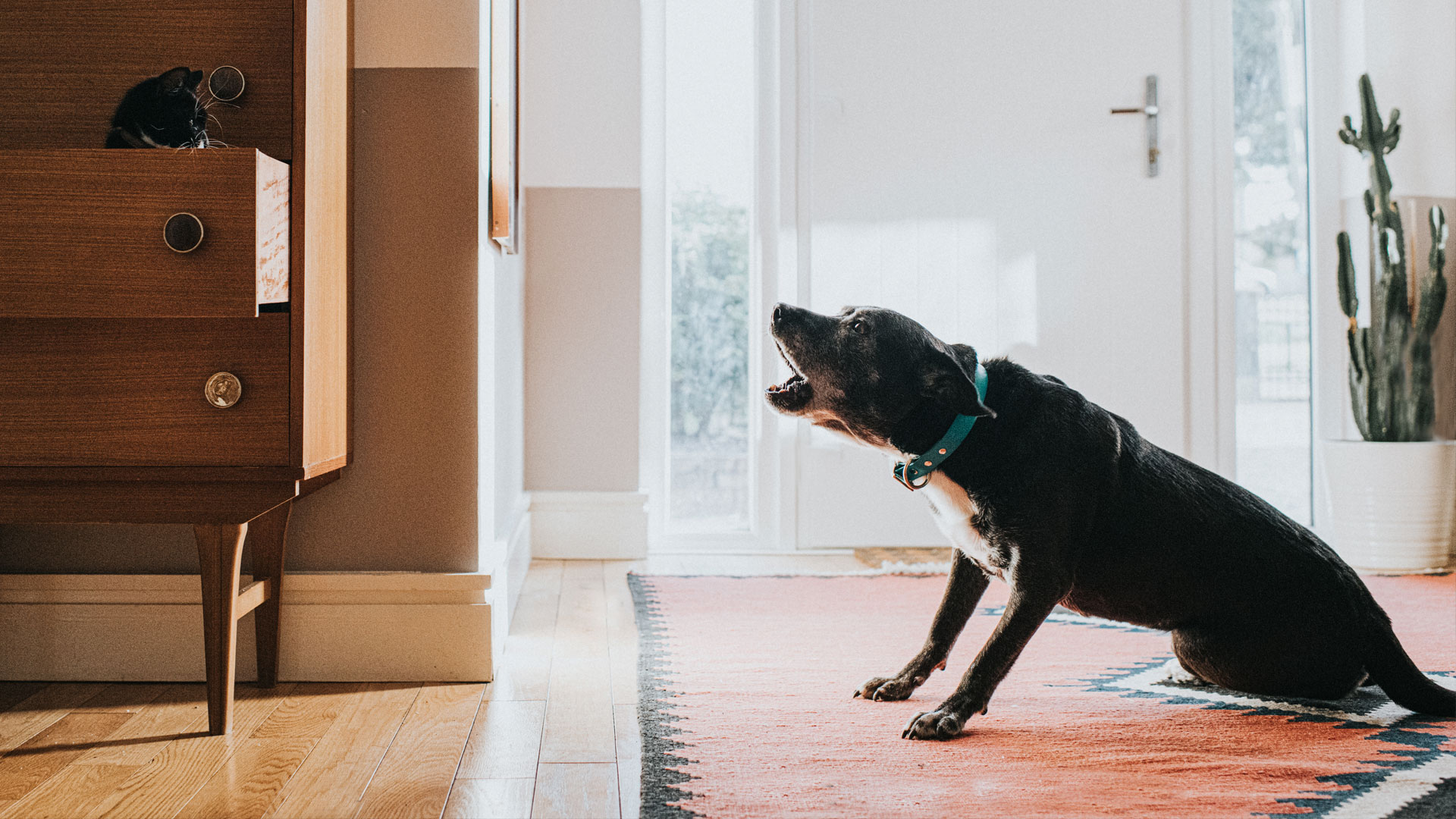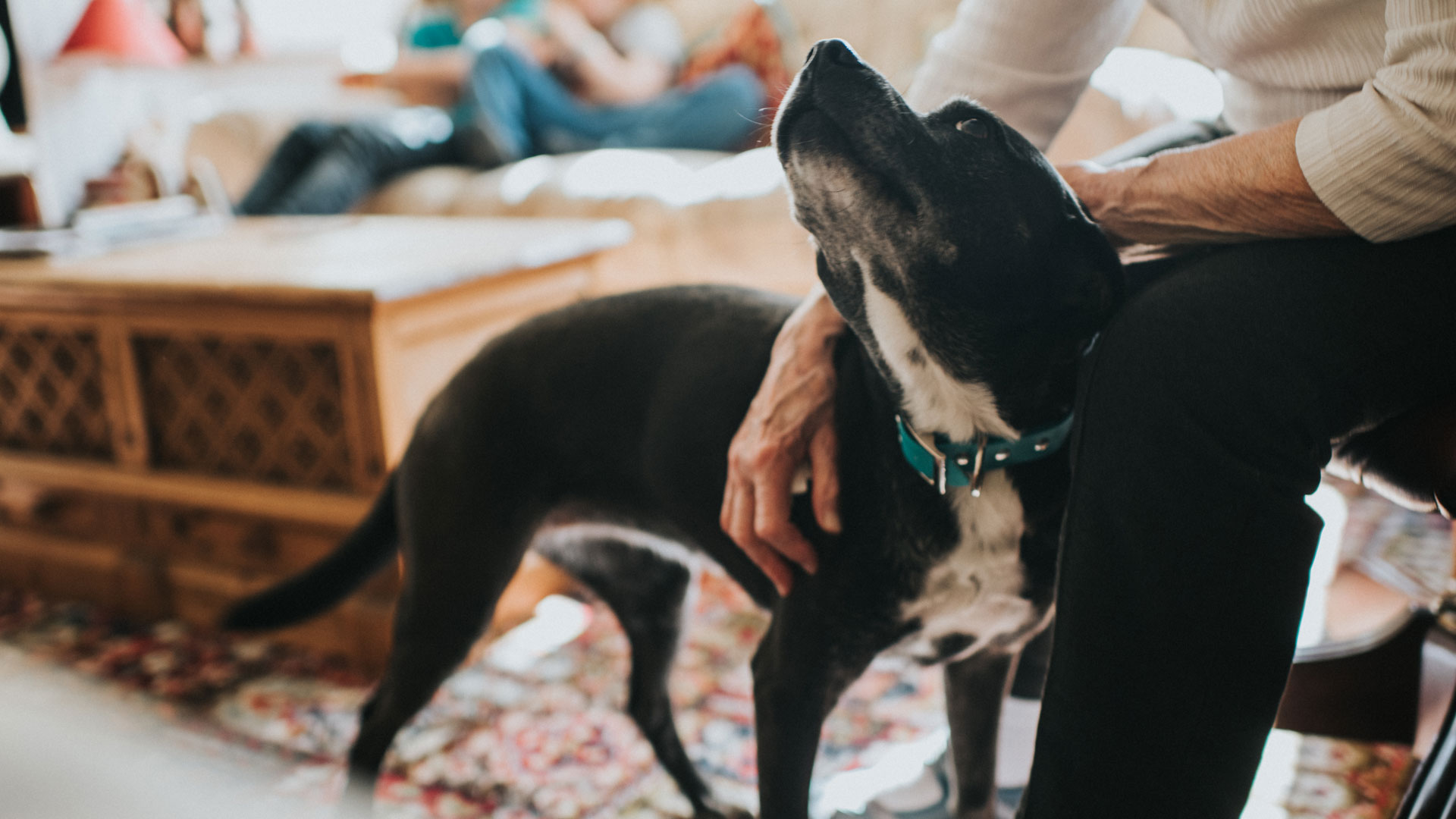Three reasons why your dog may be behaving weirdly
Has your dog’s behavior changed? Here are the 3 main reasons why your dog may be behaving weirdly

Get the best advice, tips and top tech for your beloved Pets
You are now subscribed
Your newsletter sign-up was successful
Whether they’ve started licking their paws more than usual, or they seem fearful of something, we’ve rounded up the three reasons why your dog may be behaving weirdly. Even at the best of times, dog behavior can be a little strange (after all, we know zero humans who would not only willingly, but enthusiastically eat poop!). However, if you’ve noticed that your dog has started to perform unexpected behaviors, then it might be a sign that something else is going on beneath the surface.
We consulted with veterinarian Jo Woodnutt to help explain some of the common strange behaviors that dogs can display – and what the potential causes of these could be. If you notice unusual changes in your dog, we would always recommend taking them to your vet for a check-up. Even if you think it’s the tiniest change that’s probably not worth your vet’s attention, remember that you’re the one who knows your dog best and it’s better safe than sorry.
From starting arthritis medication to switching over to the best dog foods for allergies, being a vigilant dog owner means that you’ll help your pup get the treatment they need as soon as possible.

Dr Joanna Woodnutt qualified as a veterinarian from the University of Nottingham where she then went on to practice companion animal medicine in the Midlands. She really took to the consulting side of things and helped clients with medical problems such as dermatology, behavior, and nutrition - anything that involved helping clients understand their pets better.
Three reasons why your dog may be behaving weirdly
1. Your dog is in pain
Jo says that “If you notice your dog isn’t himself, it could be due to pain”. She adds that “Pain is usually easy to diagnose, as most dogs will yelp, flinch, or react if something painful is touched. The exception is with chronic pain, such as arthritis – dogs learn to live with this pain and won’t usually react if you touch their arthritic joints.” If you have a senior dog that has started to display unusual behaviors, this could potentially be an indication that they’re in pain and need to be checked for potential arthritis.
Jo says “One behavior that’s important not to ignore is stiffness in the limbs. It’s really common for owners to dismiss a dog slowing down and having stiff joints as ‘aging’, but these dogs often have painful arthritis. There are lots of things your vet can recommend to help with arthritis, and medication is only part of it, so it’s important not to ignore these signs and leave your dog in pain.”
However, it’s not just senior dogs that can be in pain without an obvious cause. Jo says, “Don’t forget that the painful thing can be hidden – pancreatitis and impacted anal glands can both cause weird behaviors without being visible externally”. Vets are trained to be able to spot and diagnose pain that most owners won’t be aware of, so that’s why a vet visit after an unusual display of behavior is so important.
Get the best advice, tips and top tech for your beloved Pets

2. Your dog is uncomfortable
Jo says, “Discomfort also makes dogs behave weirdly”. While there can be many causes that could make a dog uncomfortable, Jo says that “Discomfort from an irritant substance or itch from an allergy could both cause weird behaviors. When you think how itchy an allergen can make a dog, it's not hard to imagine why they might behave weirdly during an allergic episode”.
Unusual behaviors could include anything from your dog chewing at their paws, to rubbing their face on the floor or furniture, to shaking their head. Itchiness is a key sign of a dog allergy (although not the only one), so if you observe your dog displaying signs that they’re feeling itchy and uncomfortable, then it’s worth taking them to the vet for a check-up.
While allergies can’t be cured, there are plenty of things you can do to help manage your dog’s symptoms to help them feel more comfortable. From changing the type of food they eat to wiping down their paws after they’ve been running on grass, managing your dog’s exposure to their allergen is one of the most effective ways to ease their discomfort. Your dog can theoretically be allergic to anything, but the most common types are insect allergies, food allergies, and environmental allergies.

3. Your dog is afraid
If you’ve taken your dog to a vet and ruled out any physical causes for its weird behavior, it might actually have a mental cause. Jo says that “Fear and phobias can cause unexpected behavior. You might know what set your dog off, but you may also find your dog behaving weirdly with no obvious cause.”
Dogs can be sensitive creatures that can develop fears over objects that we humans wouldn’t think twice about. This is why breeders will often give new puppy owners checklists of objects for their puppy to see before their socialization period ends – this usually includes fairly obvious things such as other dogs, livestock, and children, to objects you might not have considered, such as ladders, hats, plastic bags, and skateboards.
If your dog has recently had a bad experience with another dog, it might even develop a fear of other dogs. If this is the case, it’s important to try and get on top of this behavior as soon as possible. If left untreated, this fear can potentially lead to unwanted behaviors including reactivity and even aggression. We would recommend seeking out a behaviorist from an accredited organization, such as APBC. Avoid any dog trainers or behaviorists that don’t belong to an organization or have any formal training, as they will likely do more harm than good.
While fear and phobias can be a potential cause of your dog behaving weirdly, it’s worth noting that most certified trainers and behaviorists will recommend getting a full vet work-up before implementing a new training program. As Jo advises, “Unless you know what’s causing your dog’s weird behavior it’s best to get it checked out”. Pain and discomfort can manifest in strange ways, so a vet visit is key to ruling out other causes before going down a behavioral route.
Learn more about dog behaviors in our round up of weird things that dogs do that are actually completely normal. If you liked this feature, you might also enjoy: My dog had Jekyll and Hyde Syndrome - here's how I managed their emotional response .
Louise Carey is a freelance writer and the Editor of sister website Top Ten Reviews. She has been working in publishing for seven years, contributing to publications including The Independent, TechRadar, Digital Camera World and more. As the proud pet parent of a reactive border collie with a food allergy, it’s been necessary for Louise to explore a variety of fun and exciting ways to enrich an energetic dog that can’t always go on walks. She’s passionate about sharing the information she’s learned to help other pet owners as well.

